How to Build Trust with Online Health Communities
Establishing Credibility in Digital Health Spaces


How to Build Trust with Online Health Communities
The Importance of Trust in Online Medical Support Networks
Online health communities serve as vital platforms for information sharing, emotional support, and patient empowerment. Building and maintaining trust within these virtual spaces is essential for fostering engagement, ensuring accurate health communication, and ultimately improving health outcomes. This comprehensive guide explores effective strategies, principles, and mechanisms for cultivating trust in online health communities, considering the roles of design, moderation, transparency, and community participation.
Understanding the Foundations of Trust in Online Health Communities
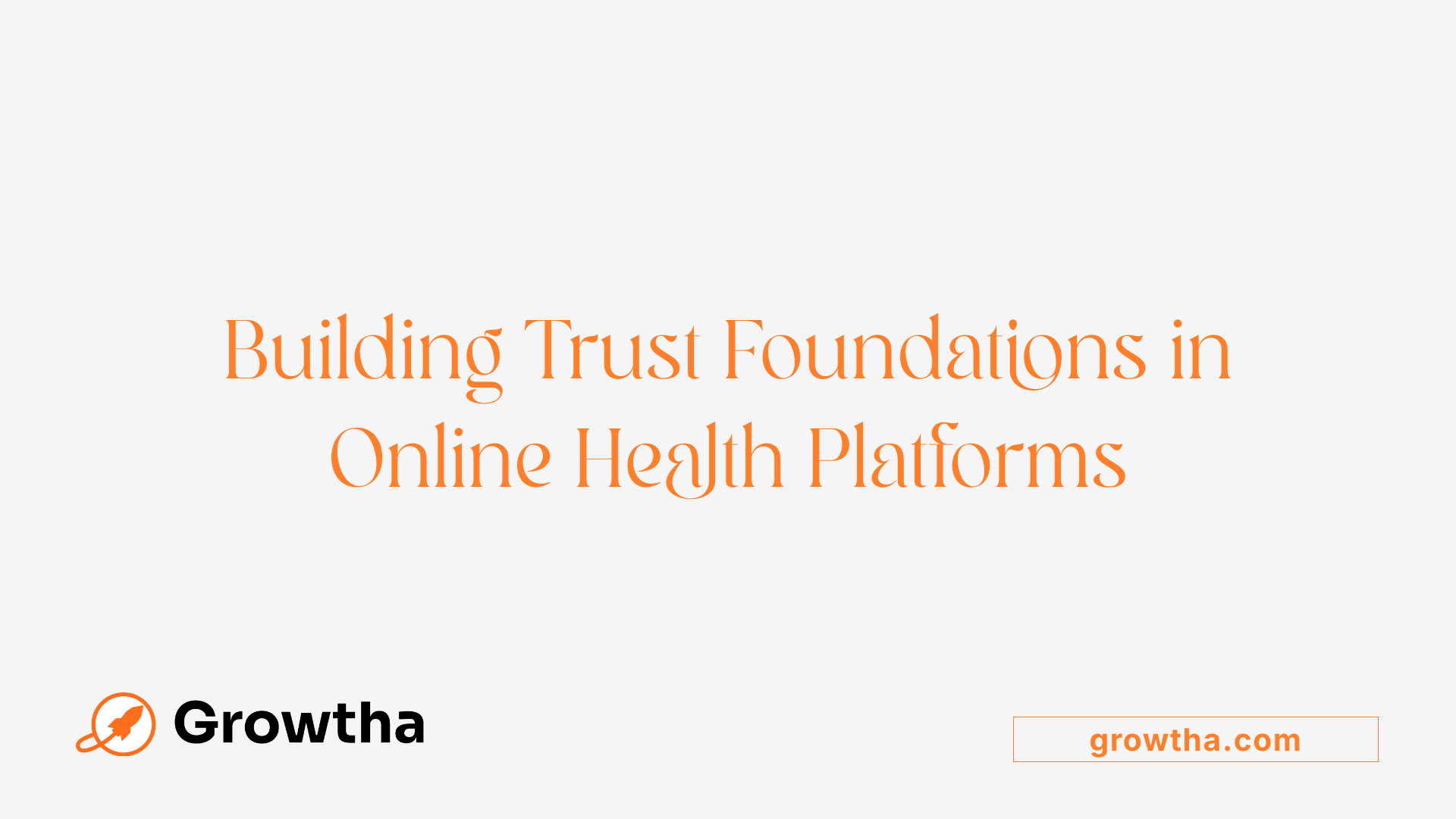
Why is trust important for the sustainability of online health communities?
Trust is essential for maintaining active participation and open exchange within online health communities. When members feel secure that their information is protected and that contributions are valued, they are more likely to engage consistently. Trust fosters a safe environment where users share experiences, seek support, and collaborate effectively. This reciprocity not only sustains the community but also enhances health-related outcomes by encouraging accurate information sharing and emotional support.
How does trust form through text-based interactions?
Trust development in online communities often occurs through repeated, meaningful text interactions. Over time, members assess each other's reliability, expertise, and benevolence based on communication. Consistent responsiveness, respectful exchanges, and transparent communication contribute to cognitive trust—belief in the contributor's credibility. Emotional bonds, or affective trust, are built through empathetic responses and shared experiences, creating a sense of closeness despite the absence of face-to-face contact.
What is the three-process framework of trust development?
This framework describes how trust evolves through three distinct stages:
- Initial contact: First impressions are formed based on profile credibility, content quality, and interaction tone.
- Relationship building: Continued engagement, transparency, and reliability deepen trust. Members begin to see others as dependable and knowledgeable.
- Trust reinforcement: Ongoing positive experiences, shared goals, and mutual support solidify long-term trust.
This process is dynamic and influenced by community design, moderation quality, and user behaviors. It emphasizes that trust is not static but develops progressively through specific behaviors and shared values.
How does trust influence engagement and health outcomes?
High levels of trust increase the likelihood that members will actively participate, share personal experiences, and adopt shared health advice. Trust also facilitates information accuracy, reduces misinformation spread, and encourages adherence to health management plans. Consequently, well-trusted communities can foster better mental health, improve chronic disease management, and motivate healthier lifestyle choices, ultimately leading to improved health outcomes.
| Aspect | Impact on Community | Influence on Health Outcomes |
|---|---|---|
| Trust Development | Encourages participation and openness | Promotes accurate information exchange and emotional support |
| Maintaining Trust | Enhances user retention and community growth | Facilitates sustained health behavior changes |
| Challenges | Risks of misinformation and breaches | Can hinder progress if trust is compromised |
Building and sustaining trust is an ongoing effort that involves transparent communication, respectful interaction, and reliable moderation. As communities evolve, continuous attention to these elements ensures their vitality and positive influence on health.
Core Design Elements Supporting Trust Building
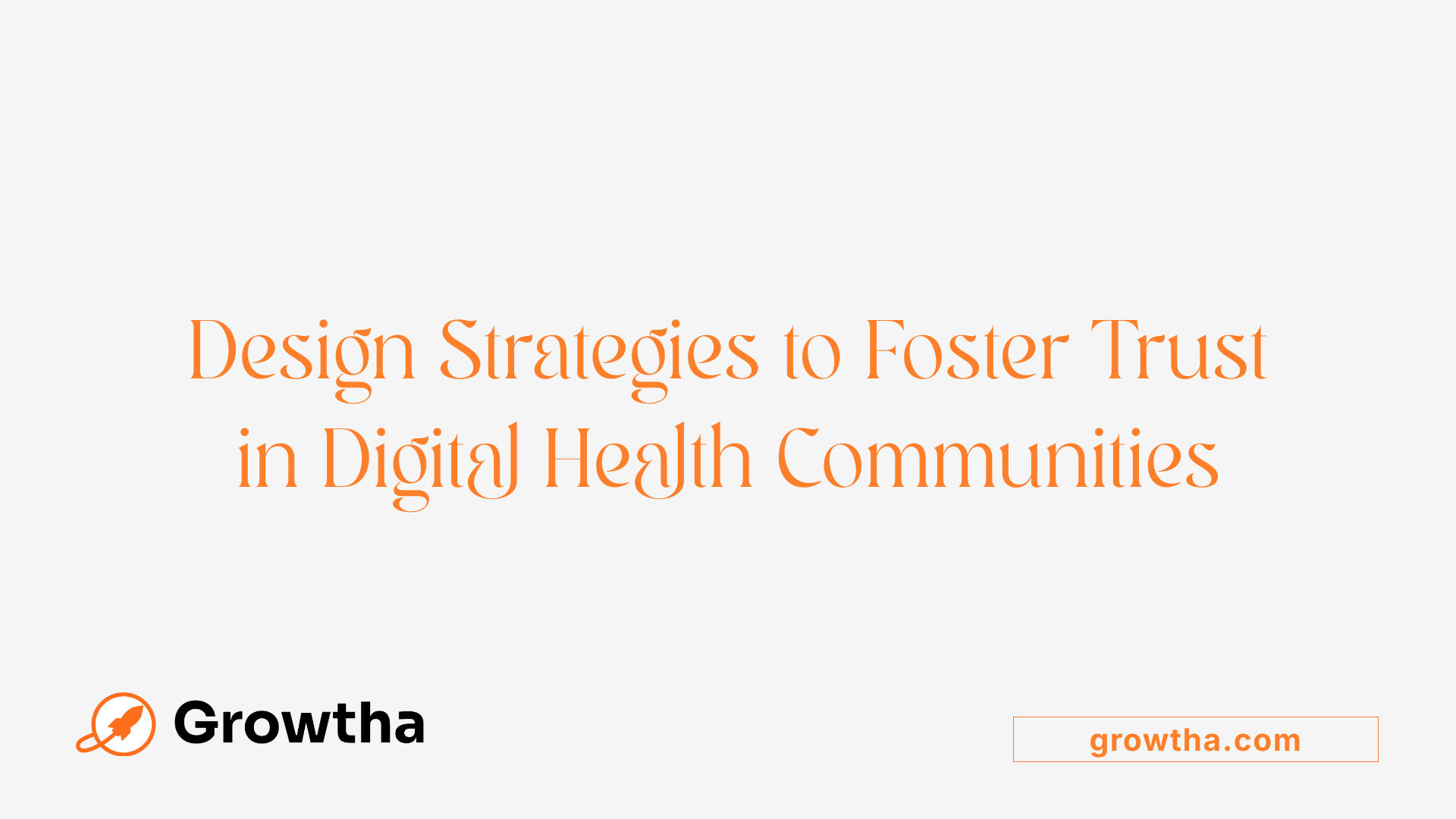
What principles and mechanisms are involved in establishing trust within digital health platforms?
Building trust in online health communities and digital health platforms is fundamental to encouraging ongoing engagement, sharing of personal health information, and adherence to health advice. Several core principles and mechanisms underpin this trust development.
First, ensuring robust privacy and security measures is essential. This involves implementing strong cybersecurity protocols to protect sensitive user data from breaches and cyberattacks. When patients and community members feel confident that their personal health information is safe, their willingness to participate deeply increases.
Transparency plays a critical role as well. Clear communication about data collection practices, how data is analyzed, and any limitations regarding data use help in establishing credibility. Users should understand what information is gathered, why it is needed, and how it will be used or shared.
Accountability mechanisms, such as regular audits and clear policies, reinforce trust by demonstrating that organizations take data protection seriously. Addressing safety and ethical considerations—like device reliability, equitable access, and avoiding biases—is also important to prevent risks such as data corruption or digital exclusion that could undermine confidence.
Furthermore, education and training ensure that both healthcare providers and patients are competent in using digital tools properly. When users understand how to navigate technology safely and effectively, their trust in the system naturally increases.
Reputational credibility, fostered through ongoing positive interactions and demonstrated expertise, solidifies trust over time. User-centered design—meaning the platform is easy to navigate, accessible, and responsive—also encourages positive experiences and perceptions of fairness and reliability.
Finally, active stakeholder engagement, such as involving community members in the design process, alongside operational transparency, significantly enhances trust and supports sustainable use of digital health solutions.
In sum, creating a trustworthy digital health environment requires a multifaceted approach—pairing technology safeguards with transparent communication and continuous stakeholder involvement—to foster confidence and long-term engagement.
Strategies for Effective Community Management and Engagement
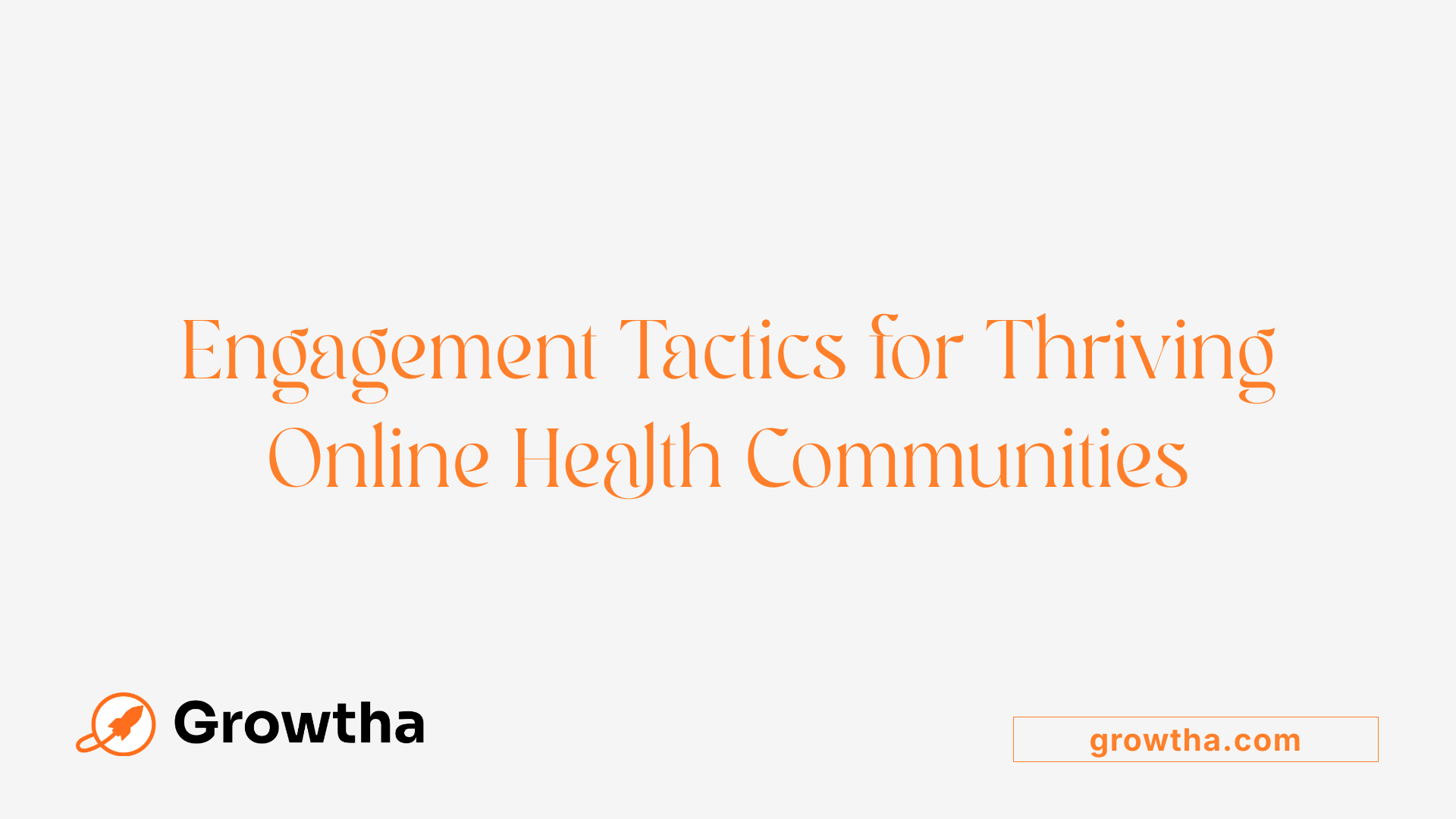
How can active outreach and relationship building improve online health communities?
Building trust within online health communities begins with proactive outreach and establishing genuine connections. Engaging with community members where they are—be it social media platforms, forums, or local events—helps create a sense of presence and support. Relationship building involves consistent interactions, personalizing communication, and demonstrating authentic care. Facilitating natural, empathetic dialogues encourages members to share their experiences and feel valued, strengthening the overall trust in the community.
What types of content creation foster credibility within these communities?
Content is the backbone of trust in online health groups. Providing accurate, evidence-based information, including expert-led articles, case studies, and FAQs, enhances credibility. Sharing real stories from community members and healthcare professionals humanizes the space and fosters emotional connections. Well-structured, culturally sensitive content that addresses members' specific needs and questions supports long-term engagement. Optimization through SEO and mobile responsiveness ensures content is accessible and trustworthy.
How does monitoring community metrics and feedback help sustain participation?
Tracking engagement metrics such as member growth, active participation, content consumption, and feedback provides insight into community health. Regularly reviewing these indicators allows community managers to adapt strategies, identify emerging needs, and address issues promptly. Incorporating member feedback demonstrates responsiveness and transparency, which reinforces trust. This ongoing assessment ensures the community remains vibrant, relevant, and aligned with members' evolving expectations.
How can promoting participation through engaging activities strengthen trust?
Organizing activities like live chats, webinars, and challenges encourages active involvement. Recognizing member contributions, featuring success stories, and facilitating peer support foster a sense of belonging. Creating opportunities for members to participate in decision-making or content creation empowers them and elevates their trust in the platform. Interactive features—such as comment sections, polls, and support forums—enhance engagement, build community cohesion, and promote sustained trust.
What resources and activities can enhance trustworthiness and community participation in online health groups?
To boost trustworthiness and participation, organizations should develop accessible educational resources sensitive to diverse cultural backgrounds. Listening to community needs and maintaining transparent communication fosters credibility. Effective moderation ensures respectful interactions, and acknowledgment of members' contributions nurtures a respectful environment. Reputation management strategies—like encouraging reviews, monitoring online mentions, and responding to concerns—further strengthen credibility.
Developing user-friendly, mobile-responsive websites with clear calls-to-action makes it easier for members to participate. Incorporating SEO-optimized content increases visibility, broadening reach. Engaging with communities via social media by sharing authentic stories, fostering two-way dialogue, and tailoring messages ensures meaningful participation. Continual reflection and adjustments, guided by trust principles, support long-term sustainability of the community.
Building Trust Through Empathy and Shared Values
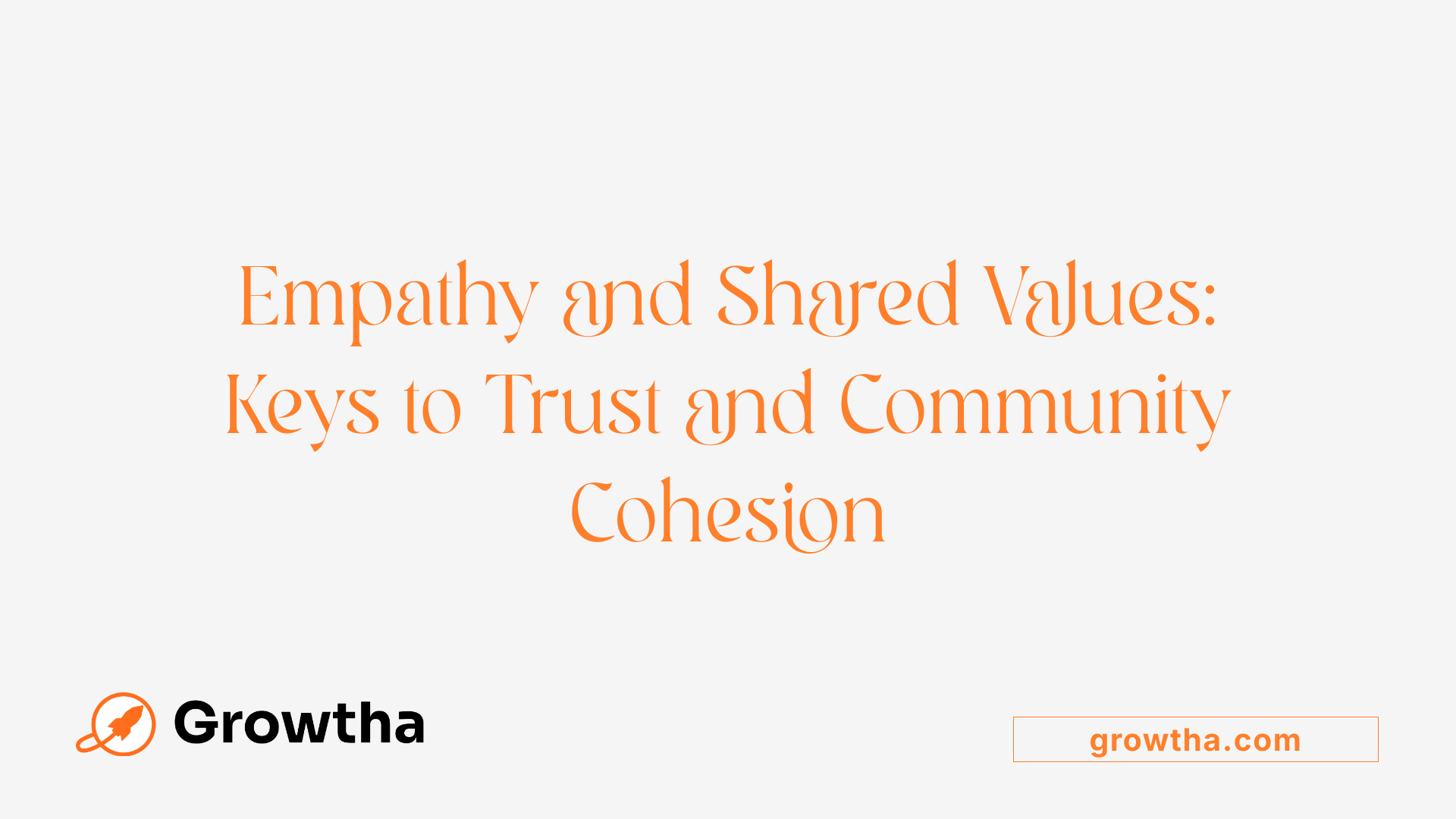
What are effective methods to foster credibility and relationship formation among community members in online health settings?
Building trust in online health communities hinges on several interactive and organizational strategies. Consistent and transparent communication is fundamental; providing clear, accurate, and honest information helps establish credibility. Encouraging members to take perspectives and show empathic concern deepens emotional connections, fostering a sense of shared understanding and support.
Peer-to-peer support is crucial for developing social ties, offering community members a platform to share experiences and advice, which reinforces relational bonds. Featuring evidence-based content and demonstrating trustworthiness through credible contributions help develop cognitive trust, making members feel confident in the information and the community.
Enhancing members' self-efficacy—confidence in their ability to manage health—encourages more active participation. Additionally, strategies to increase network density, where members are more interconnected, promote both competence-based and emotional trust.
Combining these approaches creates a more cohesive, supportive environment. Effective management involving moderation, verification, and privacy safeguards further reassures members about the community’s reliability. Collectively, these methods bolster the likelihood of ongoing engagement, contribution, and trust, making online health communities valuable resources for health support and information sharing.
How do transparency, honesty, and respect influence trust in community interactions?
In online health settings, transparency involves openly sharing information about sources, guidelines, and community rules, which builds trust through clarity and predictability. Honesty fosters integrity, making community members more willing to engage and share openly. Respect ensures that all members feel valued and heard, encouraging honest exchanges and fostering a culture of mutual trust. These elements combined form a trustworthy environment that motivates continued participation and collaboration.
Why is sharing decision-making and respecting autonomy important?
Involving community members in decision-making processes affirms their sense of control and ownership of their health journeys. Respecting autonomy means acknowledging individual choices and experiences, which enhances trust and engagement. This participatory approach helps address systemic distrust and health inequities by empowering marginalized groups and demonstrating that their voices matter.
How can organizations address systemic distrust and systemic inequities?
Addressing systemic issues requires organizations to acknowledge historical and societal barriers impacting trust. Genuinely taking responsibility involves transparent communication about efforts to combat inequalities and biases. Implementing culturally competent, trauma-informed practices shows respect and understanding. Building authentic relationships over time, rather than through performative gestures, demonstrates a sincere commitment to equity.
The importance of genuine responsibility and transparency
Organizations need to go beyond surface-level efforts by showcasing responsible actions, such as accountability for missteps, transparent resource allocation, and reporting outcomes honestly. Consistent efforts and open dialogue with communities foster long-term trust. When organizations reflect shared values like respect, fairness, and transparency, they lay a robust foundation for sustainable trust relationships with community members.
Resources and Activities to Strengthen Trust over Time
What resources and activities can enhance trustworthiness and community participation in online health groups?
Building trust in online health communities requires a strategic approach that combines various resources and activities aimed at fostering credibility, respect, and active engagement.
Providing culturally sensitive educational content is fundamental. This means offering information that resonates with diverse community backgrounds and health literacy levels, making content accessible and relatable.
Active moderation plays a vital role in maintaining a respectful environment. Moderators should ensure discussions are respectful, accurate, and free from misinformation, while also managing conflicts professionally.
Sharing success stories and organizational impacts demonstrates commitment and transparency, helping members see tangible benefits from their participation.
Fostering authentic community involvement involves encouraging members to contribute their experiences, ask questions, and connect with others. Authentic engagement is strengthened through two-way communication, responding promptly, and valuing member input.
Utilizing reputation management strategies, like encouraging reviews and monitoring online mentions, can enhance credibility. Ensuring a user-friendly platform with a mobile-responsive design and clear calls-to-action increases ease of access.
Optimizing content through SEO helps improve discoverability, attracting new members and building a broader community.
Engaging actively via social media by sharing real stories, creating open dialogue, and tailoring messages ensures ongoing participation.
Finally, continuous assessment and adaptation, guided by principles of transparency, respect, and shared power, are essential for maintaining trust over time and fostering a vibrant, supportive online health community.
Understanding Trust Dynamics to Enhance Community Effectiveness
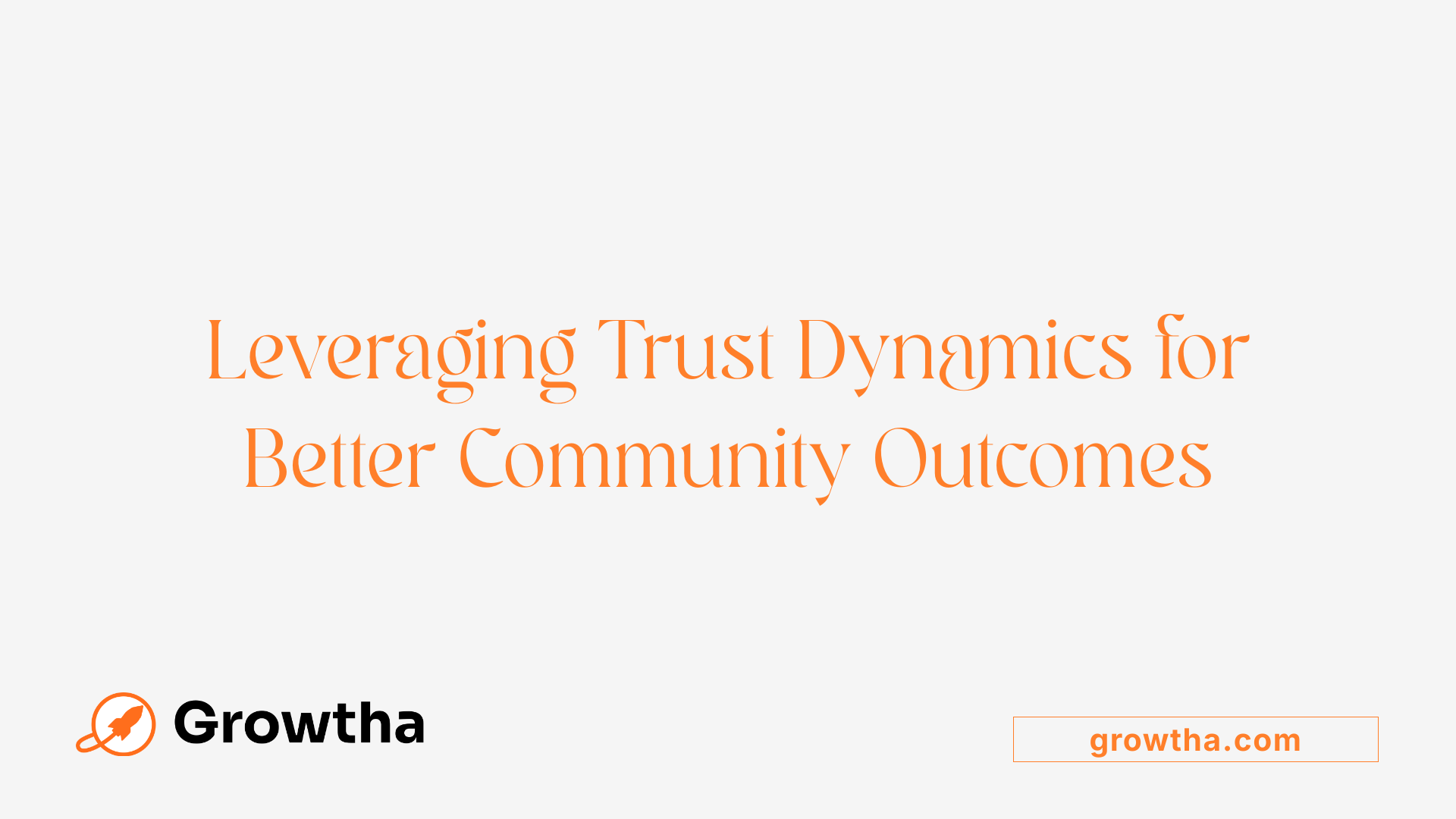
How can understanding trust dynamics support the development of health-related online communities?
Recognizing the nuances of trust is vital for creating impactful online health communities. Trust influences how users share information, engage with others, and adhere to health advice provided on these platforms. When community builders understand the factors that foster trust—such as perceived medical expertise, benevolence, and the presence of a human touch—they can design environments that feel credible and supportive.
Building credibility involves ensuring the platform maintains accurate, reliable information, has transparent moderation guidelines, and features verified profiles. Showing benevolence can be achieved through empathetic communication and active engagement, which help users feel valued and understood. The human presence, whether via real healthcare professionals or moderated interactions, reassures users that they are interacting within a trustworthy space.
Trust also depends heavily on cognitive and affective dimensions. Cognitive trust relies on rational assessments like information accuracy and contributor reliability, while affective trust develops through emotional bonds and perceived empathy. These trust types influence how willing users are to adopt health advice and build close relationships within the community.
The impact of trust extends beyond individual adherence. When users feel confident in the platform and in each other, they are more likely to participate actively, share personal experiences, and support their peers. This collective trust enhances community resilience, encourages knowledge sharing, and supports health behavior change.
Design strategies informed by trust insights include fostering transparent communication, engaging users with authentic content, and ensuring security and privacy. Managers can tailor their approaches by monitoring community feedback, promoting positive interactions, and addressing misinformation swiftly.
In essence, understanding trust dynamics allows for the development of online health platforms that are not only functional but also emotionally secure and socially reliable. Such environments motivate sustained engagement, leading to better health outcomes, ongoing knowledge dissemination, and a resilient community fabric.
Building Sustainable Trust for Better Health Outcomes
Establishing and nurturing trust within online health communities is a continuous, multi-faceted endeavor that requires strategic design, empathetic engagement, transparency, and ongoing management. By understanding the principles and mechanisms of trust, promoting shared values, and fostering authentic relationships, health organizations and community managers can create supportive environments that encourage active participation and responsible health management. Tailoring approaches based on trust dynamics, incorporating culturally sensitive resources, and maintaining transparent communication are critical to building long-term credibility. Ultimately, sustained trust enhances not only community engagement but also the quality of health outcomes, empowerment, and innovation in digital health support systems.
References
- "How Trust Is Formed in Online Health Communities: A Process ...
- Cultivating trust and building relationships during a telehealth visit
- Elevate Healthcare Experience With Online Health Communities
- The Principles of Trustworthiness Toolkit
- TRUST Checklist Priority 2 | Johns Hopkins Center for Health Security
- Understanding Engagement in Online Health Communities: A Trust ...
- How to Build and Sustain a Thriving Online Health Community - PMC
- Building trust: Leadership reflections on community empowerment ...







